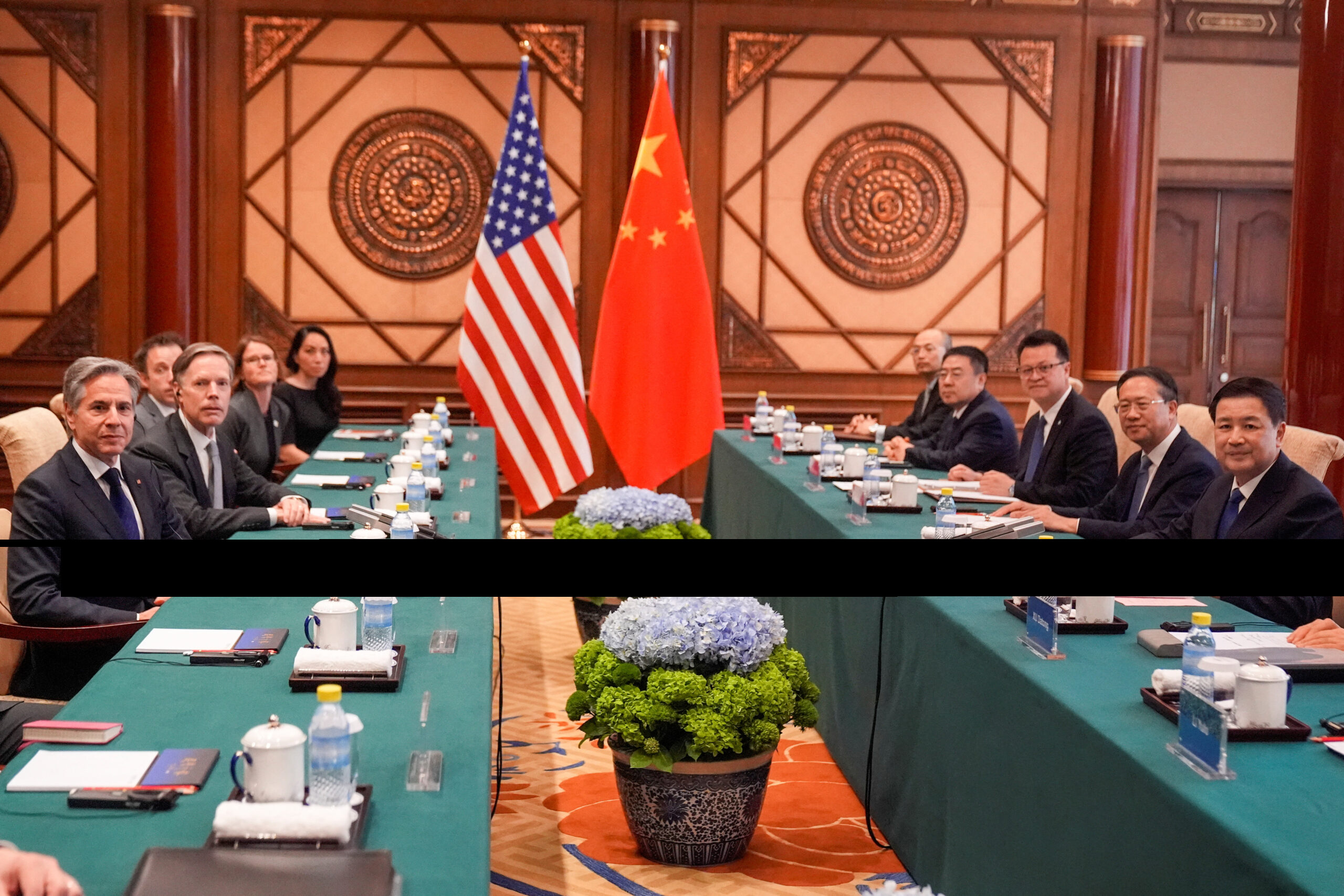Chinese Foreign Minister Wang Yi claimed that the United States is stifling China’s growth during his discussions on Friday with his US counterpart Antony Blinken, who is in Beijing to address trade and policy disputes between the two nations. Blinken is scheduled to have extensive closed-door sessions and a working lunch with Wang at the Diaoyutai State Guesthouse, as both sides aim to continue improving their relations amidst a comprehensive and challenging agenda.
As the pair settled into their opening session, Wang Yi told Blinken that the “giant ship” of the China-U.S. relationship had stabilised, “but negative factors in the relationship are still increasing and building”.
“And the relationship is facing all kinds of disruptions. China’s legitimate development rights have been unreasonably suppressed and our core interests are facing challenges,” he said.
Blinken replied that “active diplomacy” was needed to move forward with the agenda set by President Joe Biden and President Xi Jinping when they met in San Francisco in November.
“There’s no substitute in our judgement for face-to-face diplomacy,” Blinken said, adding that he wanted to ensure that “we’re as clear as possible about the areas where we have differences, at the very least to avoid misunderstandings, to avoid miscalculations”.
Blinken and Wang met in a guesthouse which is part of a sprawling complex of villas, lakes and gardens where many foreign dignitaries, including the then-U.S. President Richard Nixon, have been received.
U.S. State Department officials signalled ahead of the sessions that China’s support for Russia would feature strongly, saying that Washington is prepared to act against Chinese companies that have been helping retool and resupply Russia’s defence industry.
They have said that such assistance risks hurting the broader China-U.S. relationship, even as ties stabilise after being hit by then-House Speaker Nancy Pelosi’s visit to Taiwan in 2022 and the U.S. downing of a suspected Chinese surveillance balloon in February 2023.
Despite increasing high-level exchanges and working groups tackling issues such as enhanced military communication and global trade, stark differences remain.
Hours before Blinken landed in China on Wednesday, Biden signed a bipartisan bill that included $8 billion to counter China’s military might, as well as billions in defence aid for Taiwan and $61 billion for Ukraine.
The disputed South China Sea also remains a flashpoint, while the U.S. is eager to see more progress on curbing China’s supply of the chemicals used to make fentanyl.
Todd Robinson, Assistant Secretary of State for International Narcotics and Law Enforcement Affairs, and Nathaniel Fick, ambassador-at-large for cyberspace, are among the officials and envoys accompanying Blinken.
Wang laid out China’s position, saying the U.S. must not step on “red lines” covering sovereignty, security and development interests – an apparent reference to Taiwan, the democratically-governed island that China claims as its own, and the disputed South China Sea.
Before returning to Washington this evening, U.S. Secretary of State Antony Blinken is expected to meet Chinese President Xi Jinping, although confirmation of the meeting has not yet been provided by either side.
Additionally, Blinken has a scheduled meeting with China’s Minister of Public Security, Wang Xiaohong. In preparation for these discussions, U.S. Treasury Secretary Janet Yellen indicated that the Biden administration is open to various responses to China’s overcapacity in industry. In an interview with Reuters Next in Washington, Yellen expressed that it is unacceptable for China to achieve full employment by exporting extensively, which the rest of the world does not find acceptable.
With Inputs From Reuters
















